This really is a tradition now – for the fourth year in a row, a
bunch of us without family commitments got together for boardgames.
We started with
Arkham Horror Third Edition,
released this summer to surprisingly little fanfare (or perhaps I'm
not paying attention to the right people). It feels very odd: the
second edition, which I used to own, was the starting point for a
bunch of the mechanics, not to say the characters, used in later FFG
Mythos games (such as Eldritch Horror, Mansions of Madness and
even to some extent Elder Sign), and the game mechanics have now
gone full circle and ended up back where they started.
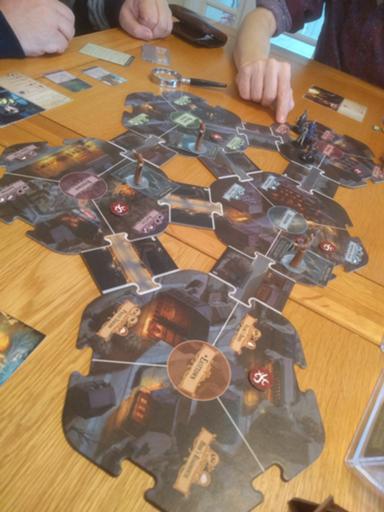
Which makes for an oddly flavourless game. To be fair, the second
edition also suffered from this; looked at purely in mechanical terms,
there's not a whole lot there, and I found that generally if you
didn't also do incidental role-playing it wasn't a great deal of fun.
That's still true (and as Michael McGlen the Oirish gangster I took
full advantage of the opportunity offered by this frank stereotype).
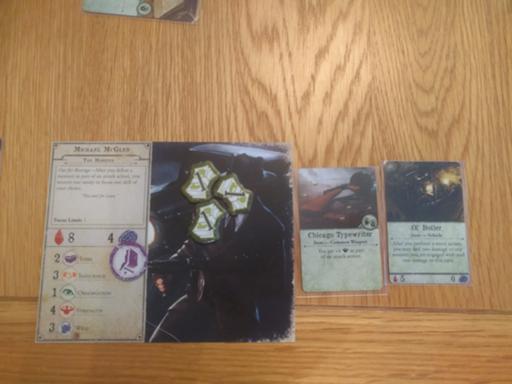
But – while I can't put a finger on just why – a lot of this game
felt as though mechanics had been invented first for the inevitable
app version, then only later turned into something that could be done
with cards and tokens. It's a very refined game, but at the same
time maybe it's spent a bit too long in the tumbler and lost its
distinctiveness?
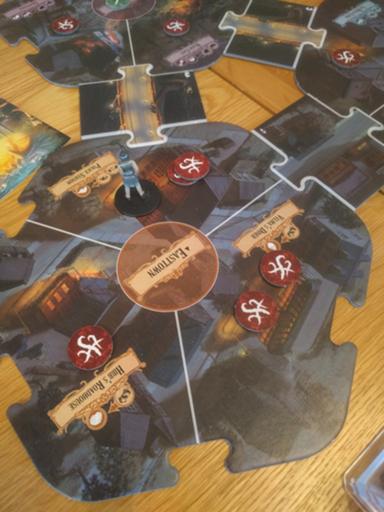
Still. It was enjoyable to play – the introductory scenario, which
still took over four hours, though admittedly we were learning the
game at the same time. (The Mythos Phase, with each player drawing and
resolving two tokens from a bag, seems unlikely to get much faster,
though.) I like the modular map, even if it's rather simpler than the
second edition version, and without the interesting variants of
monster moves – rather than following arrows, they have a standard
movement on activation, which might for example be "go towards
character with highest stat X". That makes them predictable, which
while enjoyable in planning terms is a bit of a change from the old
game. The effects of encounters in specific locations are very
predictable, and printed on the board: you'll be expected to use this
or that resource, and you'll gain that other resource from it; again,
this promotes planning and teamwork, which is very much to the fore in
this edition.
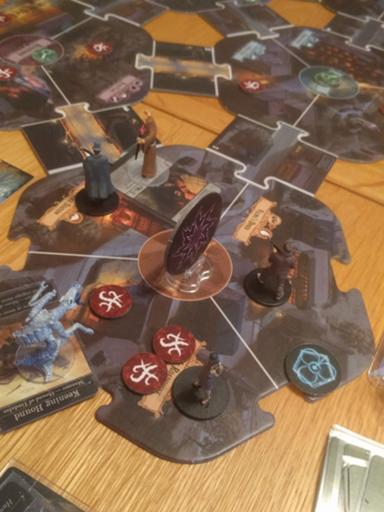
There's definitely some Pandemic: Reign of Cthulhu here too, at
least in this scenario, not only in the shape of the map with lobes
connected by chokepoints, but with Doom tokens gradually building up
(it's a standard action to get rid of them so I'm guessing most
scenarios have something of the sort) and bad things happening if
there are too many in the same place. There's a lot of that same
feeling of not having quite enough actions to do the necessary
firefighting while also achieving the goals that will win the game.
It's odd. There's little feeling of "there". There's more story in the
new edition of Mansions of Madness, because it doesn't all have to
fit on a strictly limited number of cards. I didn't hate it, and I
might well be up for playing again, but it's not the super-fast modern
edition I was hoping for, even if it very much is the next iteration
of the same system that FFG have now been using for over ten years.
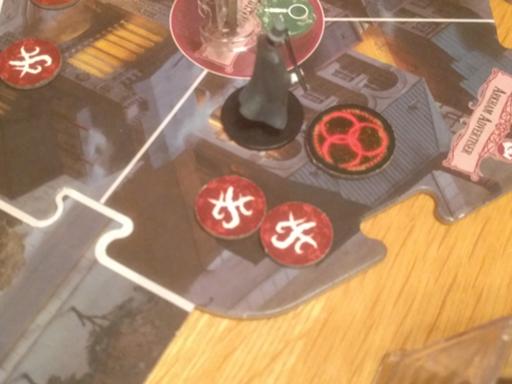
We were a bit weary after that, but had a quick game of
Flamme Rouge,
using a modified Classicisma with a refreshment zone replacing the
back straight and a cobbled section instead of the second hill.
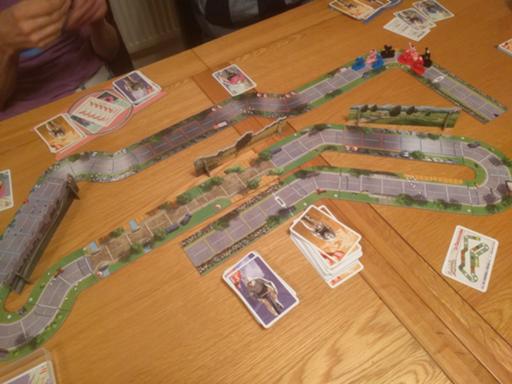
I took a handicap of an exhaustion card for each of my riders, since
I'd won easily last time I played with these same opponents… and
promptly did terribly, missing draughting opportunities, getting
blocked on several occasions, and falling apart at the end (though
failing to draw the right card even with a 75% chance of getting it
didn't help).
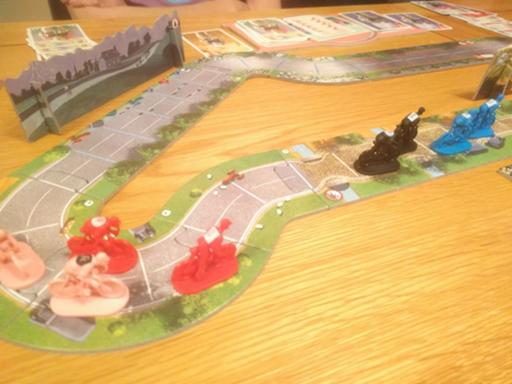
I still enjoyed the game, though, and that's the real trick: I didn't
feel frustrated or that I was being unlucky, only that I was clearly
playing badly, and I'll try to do better next time.
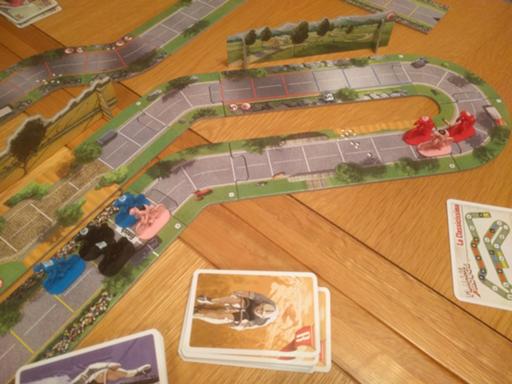
Comments on this post are now closed. If you have particular grounds for adding a late comment, comment on a more recent post quoting the URL of this one.